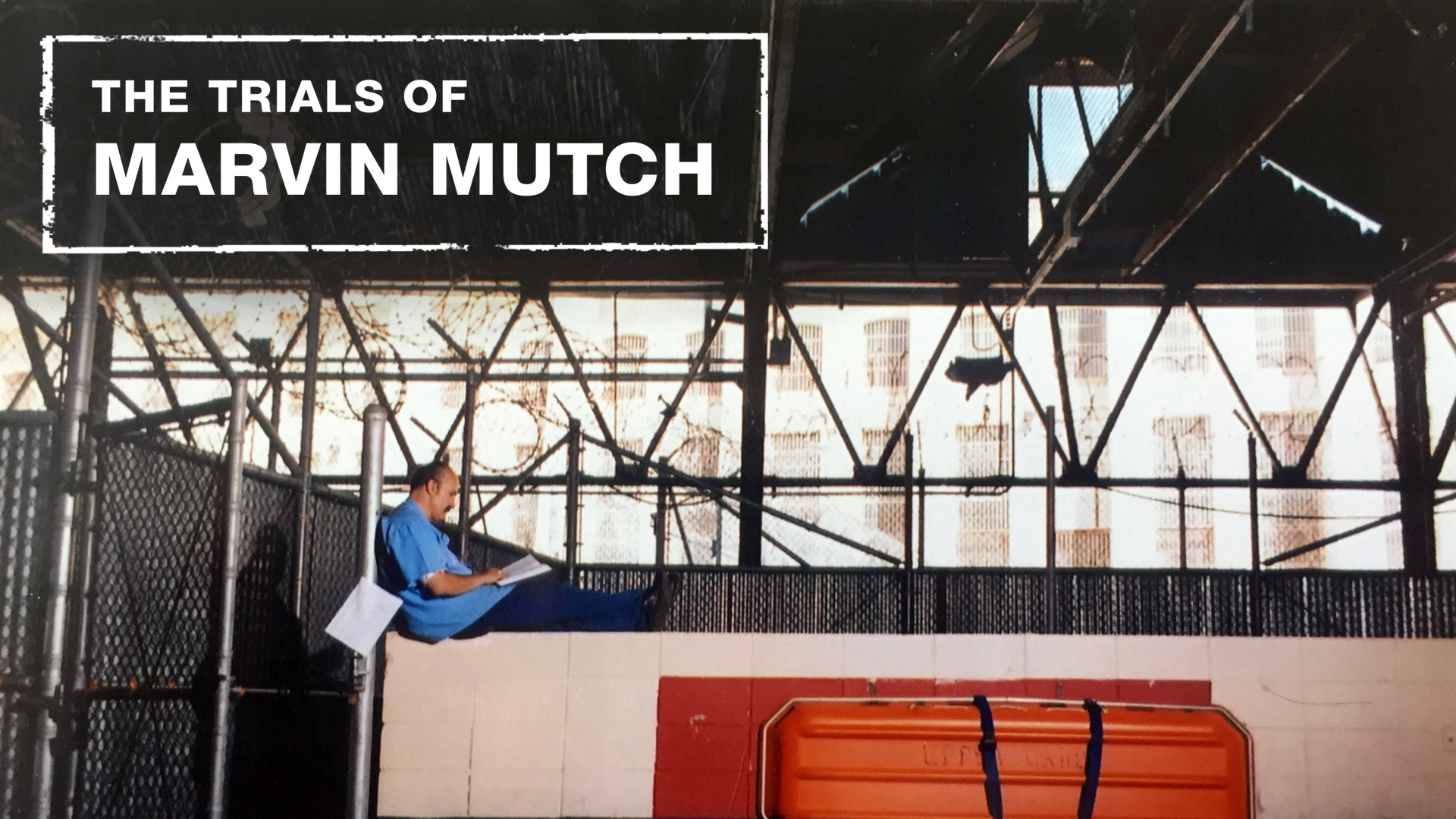“We wanted to tell the amazing story of Marvin’s life, with all of its twists and turns, not only because it exposes some real flaws in the criminal justice system, but because it puts a human face on a very complicated set of issues,” Grossberg said. “And in spite of everything he has endured, Marvin has emerged as a symbol of reform and rehabilitation.”
The Trials of Marvin Mutch will be available for viewing at www.trialsofmarvinmutch.org beginning May 24, 2017.
In addition to the digital feature film, Mutch’s story has inspired a six-part Q’ed Up podcast series. New episodes will be available each Wednesday through June 21, 2017. The Q’ed Up podcast episodes can also be found at www.trialsofmarvimutch.org and wherever you download your podcasts.
Public program
Thursday, June 1
The Trials of Marvin Mutch: Free screening and conversation
Oakland Museum of California: 1000 Oak St., Oakland
Reception: 5-6pm
Film screening and conversation: 6-8pm
Register to attend at https://trialsofmm.eventbrite.com
Filmmaker Bios
Adam Grossberg is a video producer at KQED News. Prior to coming to KQED, he produced videos for PBS, The New York Times, Current TV and the Center for Investigative Reporting. His work has received an Excellence in Journalism award from the Society of Professional Journalists, a regional Murrow award and two Northern California Emmy awards. He is a graduate of the University of California at Berkeley Graduate School of Journalism.
Alex Emslie is a criminal justice reporter at KQED. He covers policing policy, crime and the courts. He is a graduate of San Francisco State University's journalism program with a minor in criminal justice studies. Prior to joining KQED in 2013, Alex freelanced for various news outlets including the Huffington Post, San Francisco Chronicle, San Francisco Examiner and Bay Guardian. Alex is proud of his work at KQED on a spike in fatal officer-involved shootings in Vallejo, which uncovered that a single officer shot and killed three suspects over the course of five months. Alex's work with a team at KQED on police encounters with people in psychiatric crisis was cited in amicus briefs before the U.S. Supreme Court. He received the Northern California Society of Professional Journalists Best Scoop award in 2015 for exposing a series of bigoted text messages swapped by San Francisco police officers. He was honored with 2010 San Francisco Peninsula Press Club and California Newspaper Publishers Association awards for breaking news reporting on the trial following the shooting of Oscar Grant.
Production credits:
Film
Directed by: Adam Grossberg
Produced by: Adam Grossberg and Alex Emslie
Senior Producer: David Weir
Vice President, KQED News: Holly Kernan
KQED Managing Editor: Ethan Lindsey
Original Music by: William Ryan Fritch
Podcast
Reporter: Alex Emslie
Producer: Sandhya Dirks
Senior producer: Julia McEvoy
###
About KQED
KQED serves the people of Northern California with a public-supported alternative to commercial media. An NPR and PBS affiliate based in San Francisco, KQED is home to one of the most listened-to public radio stations in the nation, one of the highest-rated public television services and an award-winning education program helping students and educators thrive in 21st-century classrooms. A trusted news source and leader and innovator in interactive technology, KQED takes people of all ages on journeys of exploration — exposing them to new people, places and ideas. www.kqed.org
Press Contact:
Peter Cavagnaro, pcavagnaro@kqed.org, 415.553.8451
 May 19, 2017, San Francisco, CA — Marvin Mutch spent more than 40 years in prison for a crime he says he did not commit. Accused and convicted of a murder in Union City in 1974, Mutch was given a sentence of seven-years-to-life in prison based on his prior record and accounts that put him in the area of the victim on the day of the crime. Described as a “model prisoner” who became an advocate for prisoner rights, Mutch spent three decades futilely arguing for his release in front of California parole boards.
May 19, 2017, San Francisco, CA — Marvin Mutch spent more than 40 years in prison for a crime he says he did not commit. Accused and convicted of a murder in Union City in 1974, Mutch was given a sentence of seven-years-to-life in prison based on his prior record and accounts that put him in the area of the victim on the day of the crime. Described as a “model prisoner” who became an advocate for prisoner rights, Mutch spent three decades futilely arguing for his release in front of California parole boards.